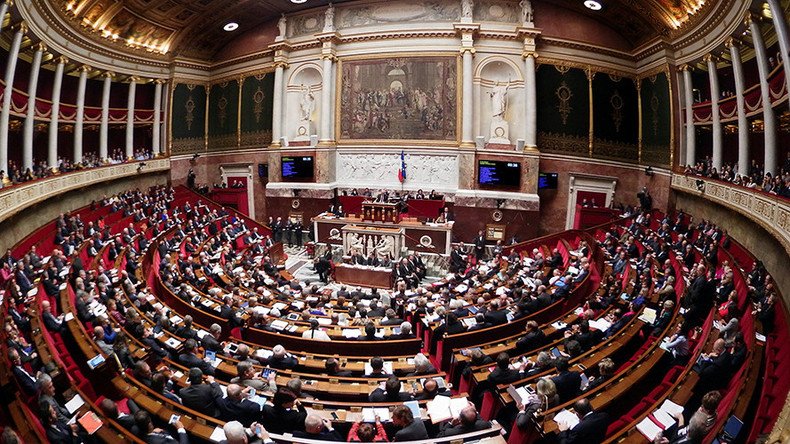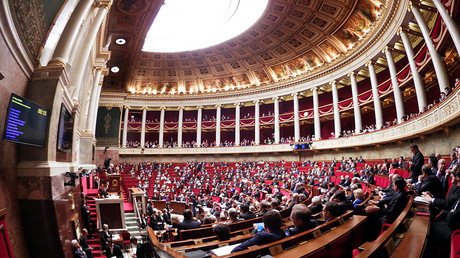‘Disenchantment in France as Russian sanctions backfire’

Even though the resolution adopted by French MPs to lift the sanctions imposed by the EU against Russia is non-binding, it’s significant and shows a shift in European sentiment, legal affairs writer Alexander Mercouris told RT.
Fifty-five members of the French National Assembly Thursday supported a resolution to lift economic sanctions against Russia. Restrictions were imposed over the crisis in Ukraine and the reunification with Crimea.
RT: How significant is the adoption of the resolution, what can we expect now?
Alexander Mercouris: I think it is very significant; it’s non-binding and only a small minority of French MPs was involved in it. However, it is a very important straw in the wind. It shows how sentiment in Europe is moving and especially in France, where the economy is not in good shape, where the agricultural sector has been hit very badly and there is frankly growing disenchantment not just in France. We saw that recently in the Netherlands, as well with the referendum on the whole Ukrainian policy, which is going nowhere.
RT: Will the government respect the vote, since many parliamentarians spoke out in support?
AM: I don’t think they will respect the vote exactly, but they have to calculate its impact. Before this vote, the French government was giving assurances to French farmers that it was doing everything it could, as it put it, to get the sanctions lifted. It is important to remember that there are elections in France next year for the presidency, which are going to be crucial. What French farmers and indeed the French population feel about these counts. Whereas, I don’t think this vote in itself is going to force the French government to change its policy, it does show in which way French opinion is moving.
RT: How do these sanction affecting both the EU and Russia?
AM: In terms of Russia, with every month that passes their effect diminishes. The main problem for Russia was that they were making it very difficult for Russian companies to raise loans in world financial markets. With every month that passes that problem reduces, because the Russian companies have paid off their debts and they worked out their own problems.
By contrast, in Europe with every month that passes the effect grows and we’re seeing this with French agriculture, but also right across sectors, because they are losing out on the Russian market, which for many of these companies in Europe and in France is very important. And not only are they losing out on it, but with every month that this continues the chances for getting back into that market falls.
The statements, views and opinions expressed in this column are solely those of the author and do not necessarily represent those of RT.













